Up to 12,000 homes set for the Solent as nitrates deadlock starts to crumble
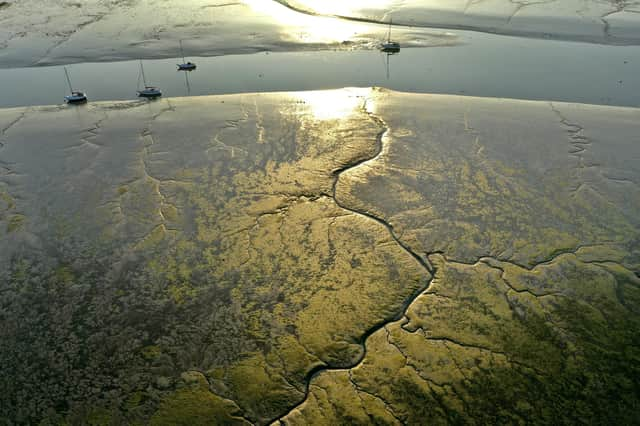

There are 12,000 potential homes in limbo at the moment due to fears over nitrates leaking into the Solent. Work to find a solution to the issue has been ramped up in a bid to ensure construction can play a major role in kickstarting the economy’s recovery from coronavirus.
Permission for new developments in south Hampshire has been on hold since last year when Natural England warned of damage to Solent wildlife caused by nitrates.
Advertisement
Hide AdAdvertisement
Hide AdSince then agencies have been scrambling to work out how to restart the sector in an environmentally-sound way so councils can meet their house-building targets.
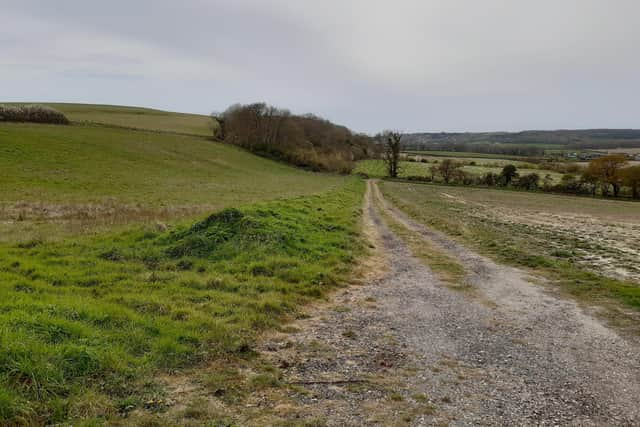

Now Hampshire and Isle of Wight Wildlife Trust has bought a £950,000 farm in Wootton, Isle of Wight, and is set to to rewild it – stopping its fertiliser-rich soil pouring more nitrates into the Solent.
Work at the 100-acre Little Duxmore farm will prevent nitrates from reaching the water.
The gain from this will be converted into nitrate credits available to purchase by developers to offset the forecasted damage that nitrates in wastewater from new homes will cause to the Solent.
Advertisement
Hide AdAdvertisement
Hide AdLittle Duxmore provides enough nitrate credits for Fareham Borough Council to give the green light for around 400 homes across various sites.
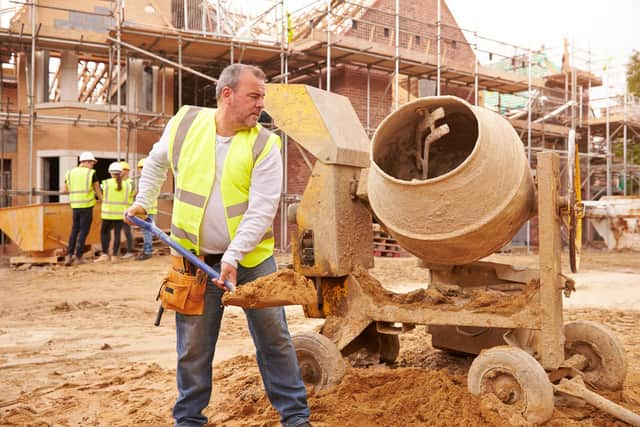

Replicating this on a larger scale, as the wildlife trust hopes to do after, will eventually lead to permissions for up to 12,000 homes being granted.
Chief executive Debbie Tann told The News: ‘It’s not our job to facilitate house-building, it's our job to look after nature and wildlife but what we were facing on the south coast was a real logjam.
‘From our point of view there was a real risk that because there were no houses being built it would result in legal challenges and developers going to government saying the restrictions are causing a massive problem.
Advertisement
Hide AdAdvertisement
Hide Ad‘Legal challenges like that could lead to environmental regulations being ignored or weakened, and that could set a really bad precedent.’
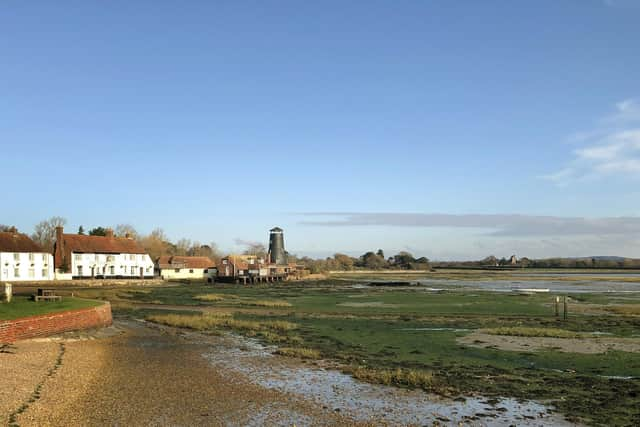

She added: ‘The Solent is really badly polluted because of fertiliser and run-off.
‘Our solution is pretty simple really, it's about buying up farmland that is releasing nitrates into the Solent.
‘If we take it back to nature, restore habitats, we’re reducing nitrates, we achieve an offsetting effect - and we’re offsetting more, it’s more than neutral.
Advertisement
Hide AdAdvertisement
Hide Ad‘We’re actually looking at a reduction in nitrate pollution overall - and it does mean developers will be able to develop.’
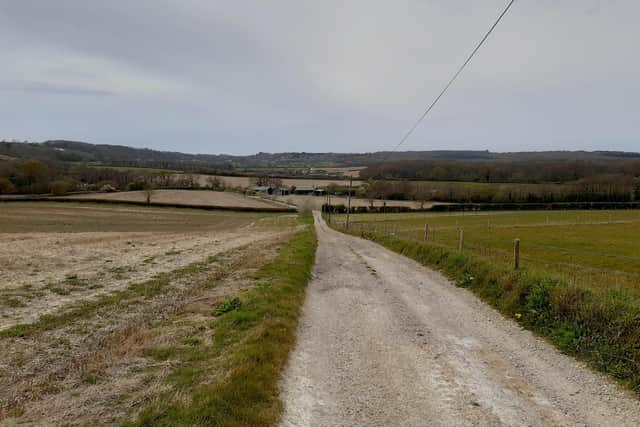

The trust is looking at farmland in the north of the Isle of Wight, and south Hampshire.
Such sites release fertiliser when they are ploughed and this seeps into tributaries to the Solent.
It's a major problem as this promotes green algae growth on mudflats that suffocate worms and other wildlife, cutting off a food source for migrating birds.
Advertisement
Hide AdAdvertisement
Hide AdSean Woodward, Fareham council leader and chairman of Partnership for Urban South Hampshire, said a legal agreement between Fareham and Isle of Wight councils, and the wildlife trust, is due in the ‘next couple of weeks’.
It will prevent developments on the land for 82 years, and ensure the trust sticks to rewilding the site.
The land cost the wildlife trust £950,000 but it will recoup this through selling nitrate credits to developers, which they will use to offset pollution on new developments.
Developers are said to have agreed to the plan, with a house predicted to cause 3kg of nitrates a year costing around £6,000 for a certificate.
Advertisement
Hide AdAdvertisement
Hide AdCouncillor Woodward has urged housing secretary Robert Jenrick to ensure any fines levied in Southern Water’s latest prosecution - for 51 charges of pollution - is spent on solving the nitrates issue, buying more farmland.
He said: ‘There’s land sufficient for probably about 12,000 houses that the trust is interested in and money from the Southern Water fine, if we could get that, would be extremely helpful so all across south Hampshire we could be building again.’
In his letter to Mr Jenrick last month, Cllr Woodward said: ‘I would ask for your further support that the proceeds of any fine (imposed on Southern Water) be allocated for these purposes - which will no doubt provide a boost to the local economy and help in the recovery phase as we move out of the socioeconomic impacts of the Covid-19 outbreak.
‘It would be a tragedy if the ongoing nitrate issues caused further significant damage to the construction sector stopping them play a part in our recovery.’
Advertisement
Hide AdAdvertisement
Hide AdOfwat previously levied a £126m fine on Southern Water but that money is going back to customers.
As revealed in The News last year, Natural England brought a sharp halt to planning permission approvals at Portsmouth, Fareham, Gosport, Havant and East Hampshire councils last year.
The organisation warned – in strong advice based on a 2018 European Court of Justice judgement – the amount of nitrates leaking into the water needed to be addressed before more homes were built in the area.
MPs recently met virtually with Natural England in a meeting chaired by Fareham MP Suella Braverman, the attorney general.
Advertisement
Hide AdAdvertisement
Hide AdShe said: ‘This is a really frustrating matter. We’ve been approached by many, many people and developers and housebuilders.
‘From a Solent MP point of view, we really want to break the deadlock - we want to see more houses come on board.’
She added: ‘I am looking forward to hearing from Natural England in the coming weeks and I’m grateful to HIOW Wildlife Trust for their efforts in finding a solution to breaking this deadlock.’
Portsmouth has mulled over a nitrate credit system as it struggles to reach the 800-a-year house-building target set by government.
Advertisement
Hide AdAdvertisement
Hide AdGosport MP Caroline Dinenage, who took part in the latest meeting on Friday, said: ‘We want people to get the economy started.
‘We’ve got a lot of small brownfield sites across Gosport that need to be unlocked - sites like the old police station. They’re sitting there derelict when they could be restored and providing a home for people.’
Developers have said it is impossible to build homes without adding more nitrates to the environment as they are in drinking water.
A Natural England spokeswoman said: ‘We are working hard to improve the vital habitats in the Solent, by enhancing biodiversity and improving water quality.
Advertisement
Hide AdAdvertisement
Hide Ad‘As part of our work, we have supported the Hampshire and Isle of Wight Wildlife Trust in developing a nutrient-offsetting scheme to deliver new havens for wildlife and alleviate the housing pressure in the local area. We will continue to work with them as the scheme is developed.
‘Natural England is also providing advice and support to local planning authorities who are considering this issue and can provide discretionary advice to developers on request.’
The News asked the Ministry of Housing, Communities & Local Government for its response to Cllr Woodward’s letter.
A spokeswoman said: ‘It is important that pollutants are dealt with and the environment is protected, while ensuring local communities get the housing they need.
Advertisement
Hide AdAdvertisement
Hide Ad‘The government is working closely with the local councils and developers to find the best way forward.’